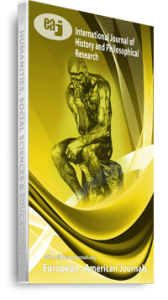Shakespeare’s Hamlet is regarded as one of the greatest mysteries of world literature to be unfolded ever since it was first written. For centuries, Hamlet the play and Hamlet the character have bewildered readers and critics alike. The play is embedded with meanings and laden in philosophical thoughts and interrogations producing an endless width of readings and controversies throughout different ages and generations. However deeply rooted in time, Hamlet has always meant something for everyone ever since it was released. The play has transcended its spatial and temporal framework to embrace the universal, making it a good reference and landmark to return to according to the needs of the time. Hamlet breaks the thematic stereotyping cycle of the time during which it was penned in ways that provide meaningful discursive interpretations re-contextualized to resonate with contemporary audience and modern readers. This paper reinterprets the tragedy of Hamlet whose inner dilemma becomes that of the Modern Man worldwide. Shakespeare’s play, Hamlet, is a call to hold a mirror to our most profound conflicts and anxieties, to the bulk of our darkest torments. Any discussion of the play should acknowledge the weight of its philosophical dimensions on which hinge the works of great existentialist philosophers like Sartre, Heidegger, and Kierkegaard (among others), which this paper will try to elucidate. A central concern in this paper is the disconcerting issue of Hamlet’s “nothingness” which becomes, in the long run, our own. Peering into the abyss of Hamlet’s psyche allows for a self-reflection, an outcry for the modern self to survive along with the fight with our consciousness to stabilize it.
Keywords: Alienation, Anxiety, Trauma, hamlet, philosophical insights

